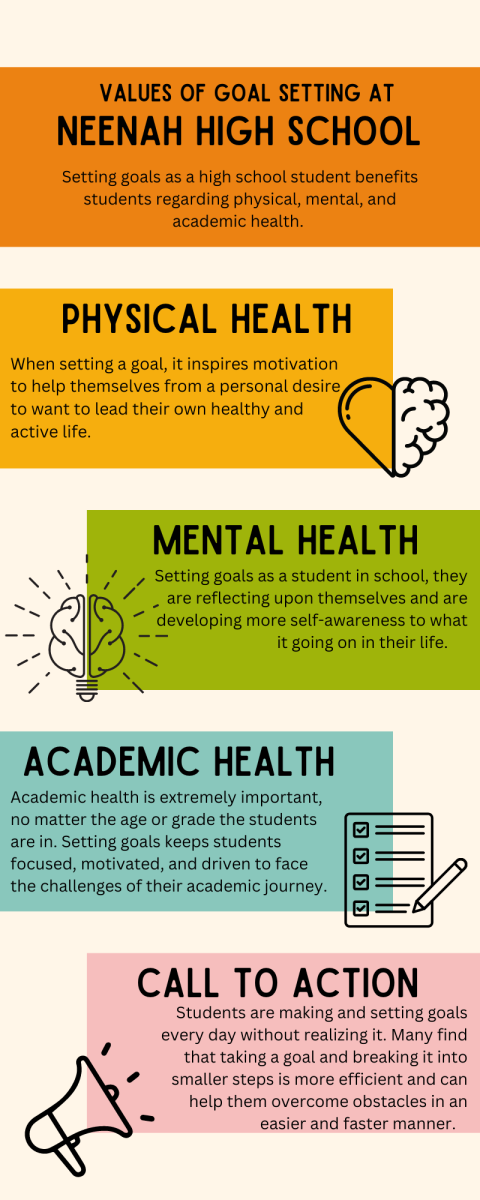The definition of a goal: the object of a person’s ambition or effort; an aim or desired result. Setting goals is a part of students’ everyday lives. Without realizing it, students are setting goals for themselves. Whether that looks like spending an hour a day studying for an upcoming test, limiting time with friends to work on homework instead, etc.
Although goals are constantly being made, many students fail to realize the importance of setting goals. Being a high school student is stressful as is, but according to the Bender Leadership Academy, setting goals helps manage time, helps create a study schedule which could help reduce possible stress about academics, and helps determine priorities so that individuals can have time for things that matter most.
As a high school student, life is extremely packed, difficult and stressful. Not only does managing goals help me, but understanding the values of creating goals helps me further as a student. Setting goals as a high school student helps physical, mental and academic health.
In the article, “The Importance, Benefits, and Value of Goal Setting” Leslie Riopel, a psychology professor states: “Goals also help align your focus and promote a sense of self-mastery. In the end, you can’t manage what you don’t measure and you can’t improve upon something you don’t properly manage.” Riopel goes on to express further how there are no bad goals. Each and every goal leads and takes a greater step forward toward greater success and performance.
Similarly to that, Joe Flick wrote a blog “A Quick Guide to Goal Setting with Students” that expresses how goals provide focus, goals promote confidence, and goals foster engagement. Three things students may lack when in school. Flick goes on in the blog to state how regardless of the grade students may be in, goals help students direct their attention and efforts when in school.
A study was conducted and Maurice J. Elias wrote an article, A Framework for Student Goal Setting, and found that at the beginning of each school year and or semester, students should record in a journal the goals they want to make in these eight specific areas: academics, social life, sports and exercise, healthy eating, family and community, hobbies and interests, screen time, and long-term plans. All of the eight areas are important in students everyday life and all relate back to helping the student’s academic growth.
Tracking goals also benefits students’ mindsets and shows that certain areas are not being neglected and can proceed in growth and success.





